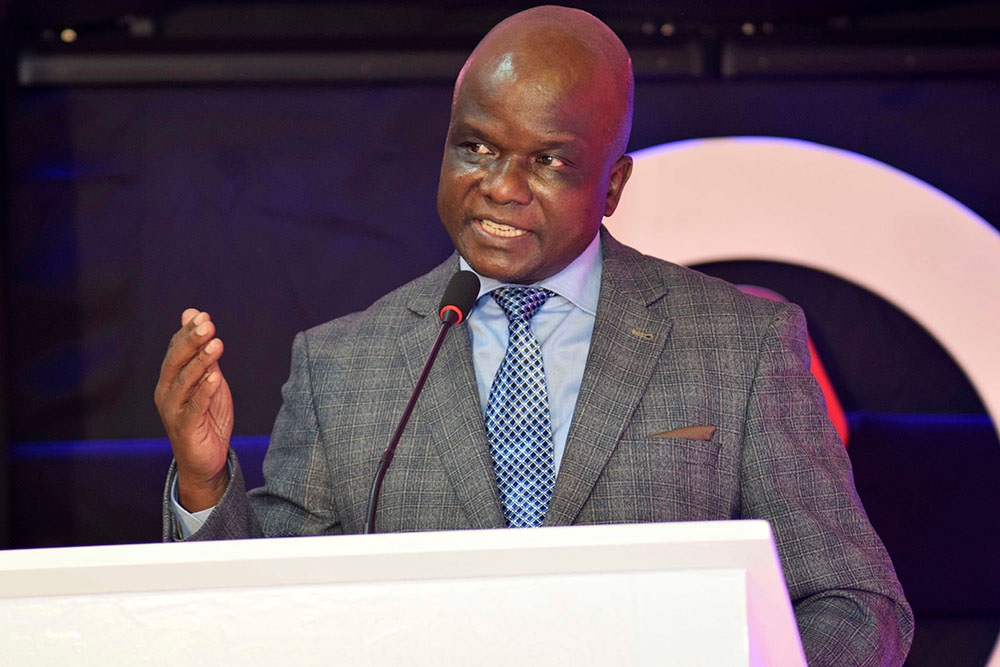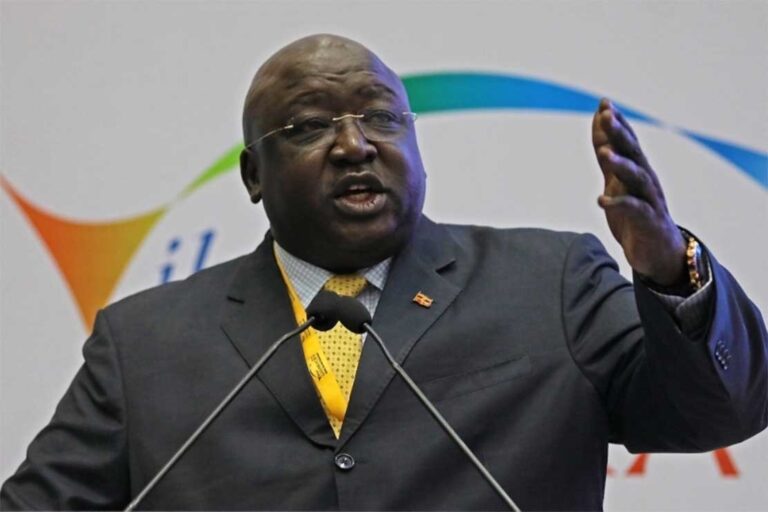
Dr. Nelson Musoba, Director General Uganda AIDS Commission
HABARI DAILY I Kampala, Uganda I Uganda has registered significant progress in the fight against HIV and AIDS, with new national figures showing continued declines in infections, deaths and mother-to-child transmission. According to the Uganda AIDS Commission, HIV prevalence has dropped to 4.9 percent, a sharp fall from 18 percent in the 1980s.
Current estimates indicate that 1.5 million people are living with HIV in the country—930,000 women and 570,000 men. Of these, 1.3 million are now on treatment. New infections have reduced from 94,000 in 2010 to 37,000 in 2024, while AIDS-related deaths have fallen from 54,000 to 20,000 over the same period.
Despite the gains, the Commission notes persistent disparities. HIV prevalence remains significantly higher among women, while men have the largest treatment gaps, making them more vulnerable to AIDS-related illness and death.
Dr Nelson Musoba, the Director General of the Uganda AIDS Commission, emphasized the importance of sustained commitment as the country pushes toward ending AIDS as a public health threat by 2030. “We acknowledge the consistent efforts of all leaders and partners in ensuring people living with HIV have access to services,” he said. “We urge communities to continue addressing myths and misconceptions, and to fight stigma and discrimination.”
Initiative Driving National Progress
Much of Uganda’s progress is attributed to the Presidential Fast-Track Initiative (PFTI), launched in 2017 by President Yoweri Kaguta Museveni to guide national HIV and AIDS interventions. The initiative is built around five pillars: engaging men and protecting adolescent girls and young women; accelerating testing and treatment toward the 95-95-95 targets; consolidating progress in eliminating mother-to-child transmission; ensuring financial sustainability; and strengthening institutional effectiveness for a coordinated multisectoral response.
The statement highlights that all sectors—from the Presidency and Cabinet to research agencies, local governments, the media, academia, cultural leaders and the private sector—are working together under this framework. People living with HIV, performing artists and development partners are also recognized for their contributions.
Officials report that the country is performing strongly toward the global goals, with 94 percent of people living with HIV identified through testing, 90 percent of those enrolled on treatment, and 97 percent of those on treatment achieving viral suppression.
Mother-to-child transmission has also decreased, with 4,700 babies currently contracting HIV annually.
These achievements will be under review at the National HIV and AIDS Symposium, scheduled for November 26–28 at Mbarara University of Science and Technology (MUST). The chief guest will be the university’s Vice Chancellor, Prof Pauline Byakika-Kibwika.
This year’s theme is “Building a Sustainable HIV Response to End AIDS as a Public Health Threat in Uganda.” The global theme for World AIDS Day 2025 is “Overcoming disruption, transforming the AIDS response.”
The symposium will include the 17th Joint AIDS Review, the National HIV and AIDS Scientific Meeting, commemoration of Philly Lutaaya Day, a HIV Financing Dialogue, and exhibitions offering free HIV testing, counseling and other health services. The event will also feature artist performances, oral and poster presentations, and groundbreaking research in HIV prevention.
Unlike past review meetings held mainly among technical experts, this year’s gathering has been opened to the public. Entrance is free, and participants may also register through the Uganda AIDS Commission website.
World AIDS Day 2025
The symposium will lead into World AIDS Day celebrations slated for December 1, 2025, in Bushenyi District, Kizinda Town Council. President Museveni will serve as Guest of Honour.
In his message, Dr Musoba expressed appreciation for the leadership of the President, development partners, and HIV networks for their advocacy role. “We commend all political, religious and cultural leaders for spearheading the fight against HIV and AIDS in our communities,” he said. “Your efforts in combating stigma and discrimination remain vital.”
As Uganda moves closer to its 2030 target, authorities say the focus will remain on sustaining progress, closing treatment gaps among men, and strengthening community involvement.




